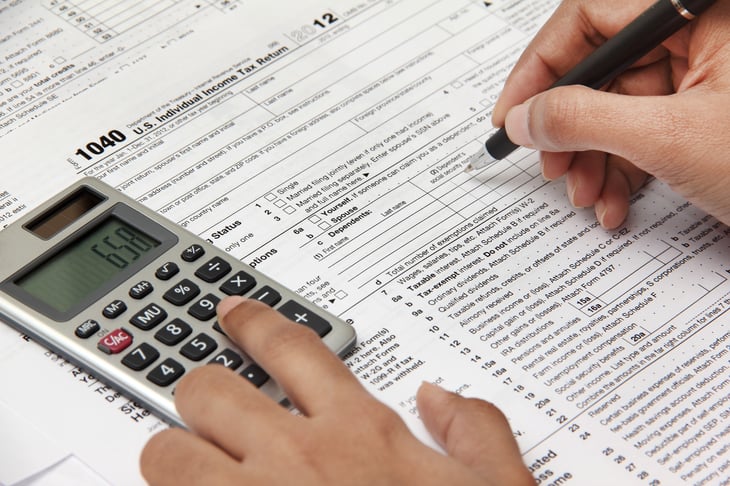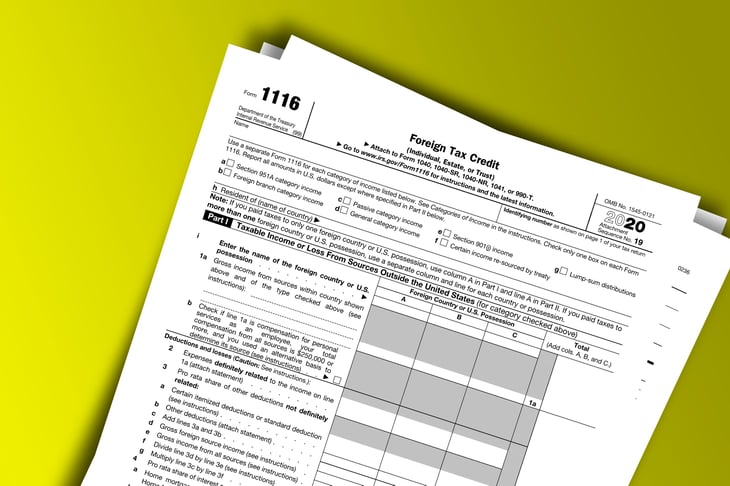
Editor’s Note: This story originally appeared on Live and Invest Overseas.
I’ve dealt with some morons in my time.
I’ll tell you about one of them in a moment. It relates to the theme of this essay, I promise … But first, some strategies for minimizing your tax bill when you live abroad.
Can living overseas mean you owe less to the IRS?
In short: Yes. However — be careful. Simply moving outside the United States does not remove your obligation to pay U.S. taxes.
U.S. citizens must file a return with the IRS every year, regardless of where in the world they reside. But living overseas can substantially reduce your U.S. tax bill …
Here are three main tax advantages available to Americans overseas.
1. Foreign Earned Income Exclusion (FEIE)

This is one of the most well-known and most commonly used expat tax advantages.
With the FEIE, you can exclude up to $112,000 of your income for 2022 from U.S. taxation ($120,000 in 2023 … thank you, inflation).
The income must be earned outside the United States, and your tax home must be outside the States too.
What Does It Mean That Your ‘Tax Home’ Is Outside the States?

You need to meet either the “physical presence test” or the “bona fide residence test.”
To meet the “physical presence test,” you must be physically outside the States for at least 330 days in a 12-month period.
To satisfy the “bona fide residence test,” you must reside in a foreign country for an entire tax year — Jan. 1 to Dec. 31. This does not mean you can’t visit the States, however.
In addition to the FEIE, there’s a related exclusion …
2. Foreign Housing Exclusion (FHE)

If you’re a U.S. expat, earning overseas, the Foreign Housing Exclusion (FHE) allows you to exclude thousands in foreign housing expenses from your U.S. taxes.
For the 2022 tax year (filed this year), the standard housing exclusion is $15,680 (14% of the FEIE). However, you could exclude a much larger amount, depending on where you live.
The IRS issues an annual notice identifying countries, and locations within those countries, where housing costs are high relative to those in the States — allowing for a larger exclusion.
The FHE can include rent, housing provided in kind by an employer, utilities, insurance, occupancy taxes, household repairs, residential parking, and more.
3. Foreign Tax Credit (FTC)

This third common expat tax advantage could be the most powerful.
With the Foreign Tax Credit, you receive a U.S. tax credit for every dollar you pay in tax to a foreign government.
The foreign tax credit may suit people who don’t qualify for the FEIE, or Americans who are tax residents in countries with a higher tax rate than the States.
If you pay more abroad than you would have in the United States, you can carry the excess taxes paid as a credit for 10 years.
One Advantage of the FTC

One big advantage of the Foreign Tax Credit is that it can apply to so-called unearned income, such as dividends, interest, and royalties.
Exactly how you employ the strategies I’ve mentioned will depend on your particular circumstances. The best use of the rules for one person may not be the best use for another.
But here’s the key point: The amount of tax you owe often depends entirely on your knowledge of IRS rules and how to use them to your advantage.
Depending on which strategy you employ, you could fill out your tax return in completely different ways—each entirely legal, but each resulting in a different amount owed to the taxman.
This is why I always recommend you employ a professional when filing your annual return, unless you are one yourself.
And keep in mind, as an American abroad you need someone well-versed and experienced in expat tax affairs, not just any CPA.
Why Overseas Americans Need an Expert in Expat Tax Affairs

I was actually once an Enrolled Agent of the IRS. And I worked with clients, helping them file their expat tax returns. Here’s where you get to meet the moron.
(I don’t want to say that everyone who doesn’t follow my advice is a moron … But, well, if the shoe fits …)
One fact about the tax strategies I mentioned that you need to know: You cannot claim the FEIE and the Foreign Tax Credit for the same income. You must choose one or the other.
I was once preparing tax returns for an overseas client. He had always claimed the Foreign Earned Income Exclusion, and expected to do so again …
However, when I was computing his tax return, I tried running the numbers a few different (perfectly legal) ways. According to my calculations, this client would pay less in taxes if he availed of the Foreign Tax Credit that year rather than the FEIE.
So, I completed the return this way and sent it on to the client for approval. I was not prepared for the response I got …
An Important Lesson for Overseas Americans

This guy sent me a nasty email demanding I use the FEIE because that’s what he’d always done …
I was committed to saving this guy money. Even if he wasn’t committed to it himself.
So, I sent him different versions of his return — one using the FEIE and one using the Foreign Tax Credit, so he could see for himself what he would be saving by using the latter.
To me, it’s just a reminder that even those who have been abroad for a long time and consider themselves savvy can still miss a trick.
Don’t be like that guy.
Find yourself an expat tax expert — and take their advice.
